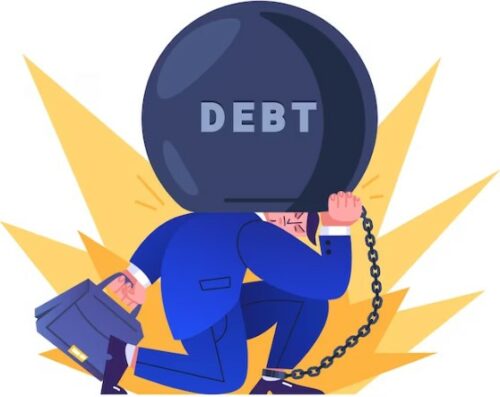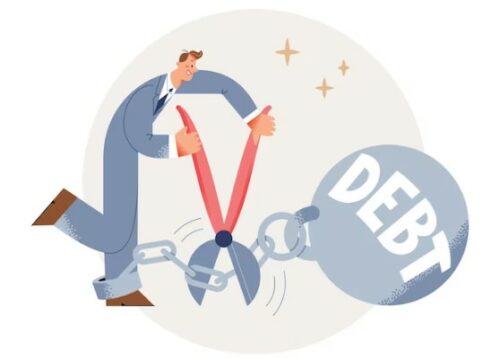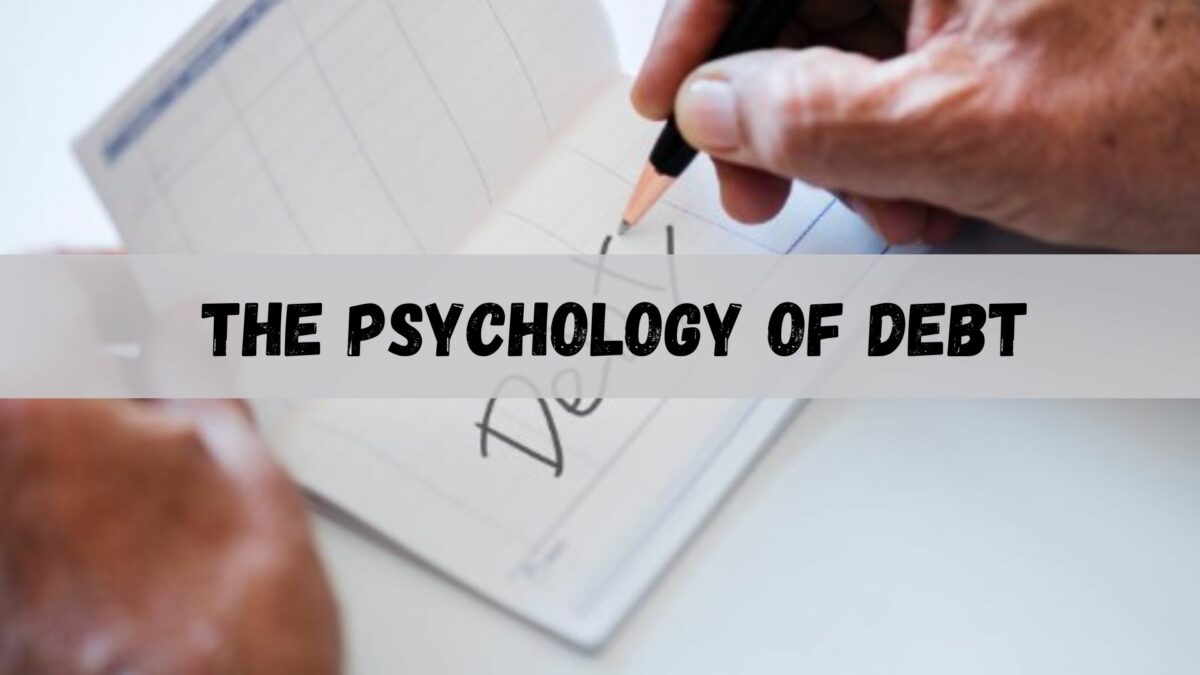“Promises make debt, and debt makes promises.”
– Dutch Proverb
I received my first credit card when I was a plebe at West Point. Perhaps there should have been a hazing ritual to go along with it so that I would have been more scared of it than I was, but, hey, I was a plebe. I wasn’t going anywhere, and there really wasn’t too much to spend money on anyway.
However, as time went on and our freedoms were given back to us one at a time, I discovered the world outside of the grey walls of West Point. By the time I was a senior, I was going away as often as I could. While we had a stipend, it wasn’t much, and since we couldn’t take another job, the flow of income was limited.
But, that didn’t stop me from going out and having a good time. I was going to graduate and become a lieutenant and make the BIG MONEY. At least, that’s what I told myself, which allowed me to rationalize whipping out that credit card and funding my lifestyle with my future earnings.
Actually, what was going on was a battle inside of my head between two parts of my brain. Inside all of our skulls are two main brain areas constantly battling it out for control of what we do every day. There’s the thinking, sentient, rational part of our brain called the prefrontal cortex. It’s the part that acts like the responsible adult, thinking about the future, and not getting too carried away in the present. It’s usually the section of the brain that sends out the “whoa…maybe that’s not such a bright idea” signals that we altogether too often ignore.
The second part of the brain is the limbic system, what Seth Godin calls the lizard brain and what I call the Monkey Brain, since it’s the same system that we share with monkeys. Monkey Brain wants fun, and he wants it right now. He’s the one that tells you that eating chocolate on vacation doesn’t count because you’re going to start the diet as soon as you get back from vacation, only to come up with another excuse (“DIET CAN’T START ON DAYS THAT END WITH ‘Y’”) when you get back.
Sometimes the prefrontal cortex wins, and sometimes Monkey Brain wins. When I was younger, stationed in Germany, and spending money like there was no tomorrow, Monkey Brain won a lot.
Let’s look at some of the ways in which issuers of debt team up with Monkey Brain to convince you that debt is good:

- Reframing the issue. Let’s say you want a new car. You walk up to the lot and tell the salesman, replete in his white tennis shoes and Cristiano Ronaldo hairdo (if I’m going to stereotype, may as well go all the way), doesn’t ask you what your budget for the car is. He asks you what sort of payments you want to make. He’s doing a great job of making the payments seem small, manageable, and tolerable. However, when you’re in your 36th month of what seems like a never ending auto loan, you’ll rethink the tolerability of yet another friggin’ car payment.
- Hyperbolic discounting. Hyperbolic discounting is what happens when you discount whatever will happen to your future self in exchange for what is happening right now. Poor future you, stranded five years down the road, saddled with a back-breaking burden of credit card debt because you absolutely, positively HAD to have that man cave right now instead of saving up for it and paying in cash.
- Pain avoidance. Believe it or not, paying for something in cash lights up the pain centers in our brain, the same pain centers which light up when you decide that a burning stove is a great place for an arm rest. Granted, the pain isn’t as much, but it is still there, as you’re experiencing a sense of loss as you hand over cash. Using plastic doesn’t light up the pain centers in the brain because you don’t have to pay for it right away. Good ol’ future self can handle that Visa bill when it comes.
- A scarcity mindset. Monkey Brain likes to hoard. He believes that there will be no bananas available tomorrow, so he makes hay, or rather, gathers bananas today while the sun is shining. For example, when you go looking for houses to buy and you fall in love with the one which is just perfect for you but is $25,000 out of your price range. Monkey Brain will tell you that there will never, ever, ever be another house just like that one and you have to have it now or you may wind up living in a van down by the river.
Knowing how the enemy fights – yes, I consider debt issuers the enemy; I used to work for Capital One, and I know their ways – is all well and good for helping us to think about future debt, but it doesn’t do a lick of good if we’re already saddled with debt.
I know. I was there. At one point, between graduate school loans and a mortgage, I had nearly $300,000 in debt.
I’m debt free. Completely. And I won’t ever go back.
To quote Forrest Griffin, the juice is worth the squeeze.
So, if you’re in debt, how can you battle Monkey Brain to get yourself out of the hole that you dug?

- Own the problem. The first step in taking positive action and getting out of the hole is to acknowledge that you got there in the first place. Sure, life might have dealt you a bad hand, but you chose to get into debt. Now you’re choosing to take the steps to get out. That’s very empowering when you give yourself permission and control to address the problem.
- Write a contract with yourself and, if applicable, with your spouse, committing to an action plan to get out of debt. It needs to include specific steps and specific milestones, and a timeline. Use the SMART acronym – Specific, Meaningful, Actionable, Realistic, and Time-bound – to help you come up with the goals. If you make $40k a year and have $100k in debt, you’re not going to get out in a year, so don’t set yourself up for failure. Then, and this is important, sign the contract at the top. As Duke’s Dan Ariely points out, when you sign at the top of a contract, you’re more likely to keep your commitments than when you sign it at the bottom.
- Use self-affirmation. I’m not talking about Stuart Smalley here. What I mean is to find the positive things that you know about yourself and dwell on them. If you beat yourself up or demean yourself, then you’re much less likely to meet your goals. You do have the capabilities to meet your goals and to get out of debt, but when the road is long, it helps to give yourself a little pep talk along the way.
- Give yourself intermittent rewards and make it a game. Is there something which is really important to you, such as a good dinner at a nice restaurant, going to a great soccer match, or getting a little pampering at the spa? Set intermediate milestones and reward yourself when you get there with a little prize. See if you can get there faster or pay off more than you expected by your milestone. Then reward yourself. Monkey Brain will see that reward and will kick in and help you get there because he wants fun too!
- Start somewhere. Dave Ramsey says use the snowball method to pay the smallest debt off first. Math nerds say pay the highest interest rate. You look up every possible debt reduction trick and strategy in the book and wind up in analysis paralysis while interest continues to pile on top of itself because you’re doing nothing. Instead, engage a process in your brain called the Zeigarnik Effect to get going. The Zeigarnik Effect was named after waiters who got distracted while trying to give their customers’ orders to the kitchen in restaurants. He would get distracted, but the order would keep rattling around in the waiter’s brain until he could give it to the kitchen. Your brain hates unfinished tasks and will bug you to no end until you get it done. So, once you start the process of paying off the debt, the Zeigarnik Effect will kick in and drive you nearly insane until you’re done. If you don’t believe in the power of this, ask my poor wife who has to listen to me prating on about paying off the mortgage on every single dog walk.
Find an accountabilibuddy. It sucks fighting this battle alone. Find someone to help you. Use that person for support, a cheerleader, and the occasional swift kick in the pants when you need it. It’s easier to fight this as a team than as an individual.
Author Profile
- John Davis is a nationally recognized expert on credit reporting, credit scoring, and identity theft. He has written four books about his expertise in the field and has been featured extensively in numerous media outlets such as The Wall Street Journal, The Washington Post, CNN, CBS News, CNBC, Fox Business, and many more. With over 20 years of experience helping consumers understand their credit and identity protection rights, John is passionate about empowering people to take control of their finances. He works with financial institutions to develop consumer-friendly policies that promote financial literacy and responsible borrowing habits.
Latest entries
 Low Income GrantsSeptember 25, 2023How to Get a Free Government Phone: A Step-by-Step Guide
Low Income GrantsSeptember 25, 2023How to Get a Free Government Phone: A Step-by-Step Guide Low Income GrantsSeptember 25, 2023Dental Charities That Help With Dental Costs
Low Income GrantsSeptember 25, 2023Dental Charities That Help With Dental Costs Low Income GrantsSeptember 25, 2023Low-Cost Hearing Aids for Seniors: A Comprehensive Guide
Low Income GrantsSeptember 25, 2023Low-Cost Hearing Aids for Seniors: A Comprehensive Guide Low Income GrantsSeptember 25, 2023Second Chance Apartments that Accept Evictions: A Comprehensive Guide
Low Income GrantsSeptember 25, 2023Second Chance Apartments that Accept Evictions: A Comprehensive Guide

